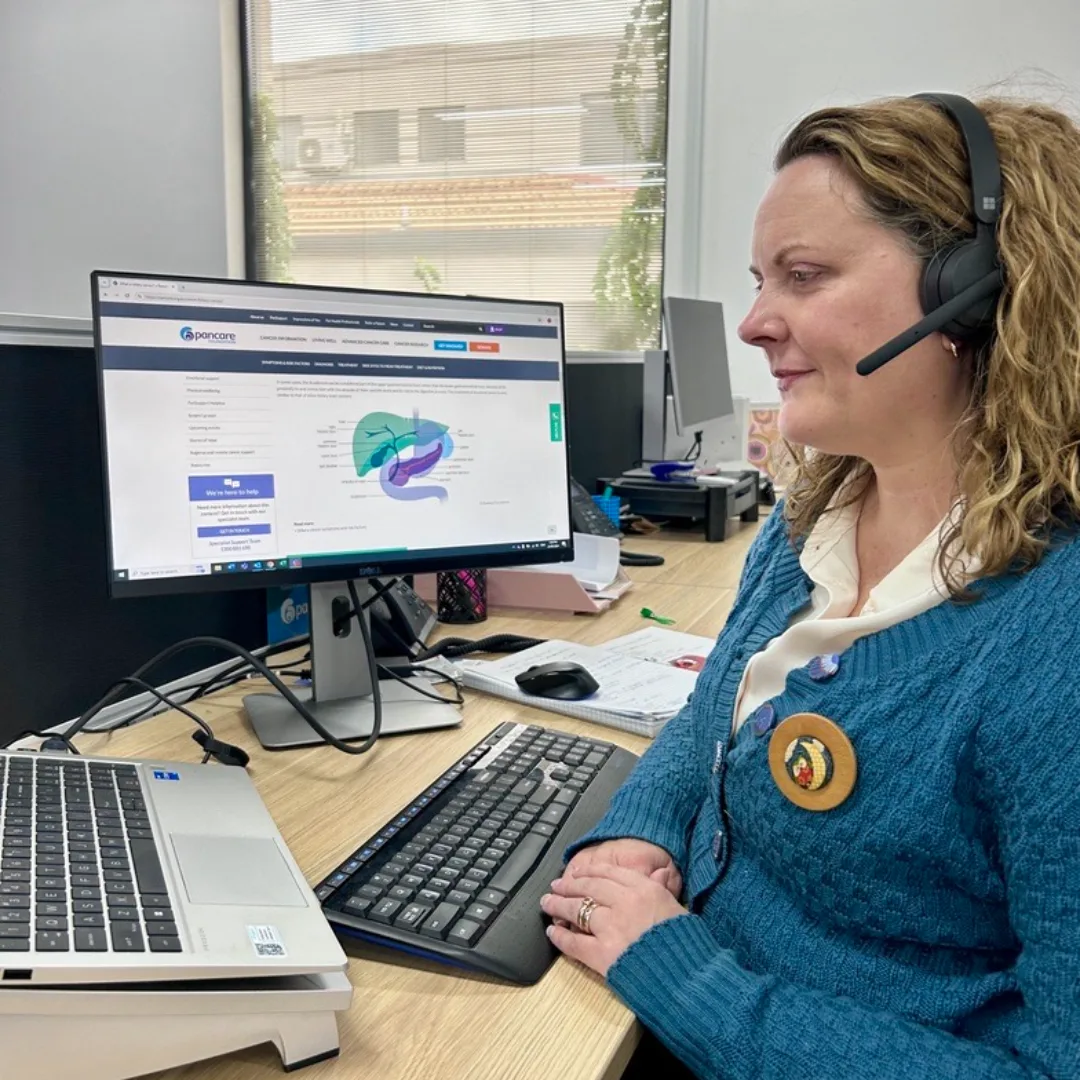Signs and symptoms of biliary cancer
Recognising the signs and symptoms of biliary cancer can be hard. When the disease first develops, it often does not cause any obvious symptoms, or the symptoms may be like those caused by common, less serious conditions.
This means you may have been sent for several different tests before biliary cancer was considered, and you may have had the cancer for some time without knowing.
If you have symptoms that worry you, it's important to see your GP. This section explains what symptoms to look for, what happens when you see your doctor, and what to expect if you need to see a specialist.
Signs and symptoms
Biliary cancer often has no symptoms in its early stages, which makes it hard to detect. This means a person can be living with biliary cancer for some time before a diagnosis is made.
As the disease progresses, some common symptoms may include:
- pain around the tummy (abdomen) or the right side of the ribs
- feeling sick (nauseous) with loss of appetite
- yellowing of the skin and eyes (jaundice)
- dark urine and/or pale stools
- itchy skin
- unexplained fatigue
- unexplained weight loss
- fever.
Jaundice is a serious symptom of biliary cancer that needs urgent medical attention. If your skin or the whites of your eyes turn yellow, see your doctor right away.
Sometimes, biliary cancer is discovered by chance when you're having tests or scans for something else, before any symptoms appear.
Seeing your GP
If you've been experiencing any of the symptoms mentioned above, your first step should be to visit your general practitioner (GP).
What to expect
Your GP will conduct a check-up to find out what's causing your symptoms. They will:
- ask you about your symptoms and how long you've had them
- ask about your medical history
- perform a physical examination
- arrange any tests they feel are necessary, such as blood tests or an ultrasound.
If you have jaundice, your GP will arrange urgent tests including:
- blood tests to check your liver function
- an ultrasound of your abdomen
- possibly a CT scan.
Be prepared
It can be helpful to write down your symptoms before your appointment, including when they started and whether they've changed over time.
If your GP has concerns based on your symptoms and initial tests, they will refer you to a specialist for further investigation.
If you have jaundice, you should be referred to a specialist urgently. If you have other symptoms, your investigations should be completed and reviewed by your GP within two weeks of your first appointment.
If symptoms worsen while you're waiting for appointments or test results, contact your GP right away or go to an emergency department if needed.
Being referred to a specialist
If your GP has concerns about your symptoms, you will be referred to a biliary cancer specialist for further investigation.
You might see a biliary cancer specialist at a public hospital or in private practice.
Who are biliary cancer specialists?
Biliary cancer specialists are doctors who are highly trained in diagnosing and treating biliary cancer. They may include:
- gastroenterologists (specialists in digestive system diseases)
- hepatologists (specialists in liver diseases)
- hepatobiliary surgeons (specialists in liver, pancreas, gallbladder and bile duct surgery)
- medical oncologists (specialists in cancer treatment with medication).
These specialists work as part of a team with other health professionals who will support you through your diagnosis and treatment.
How soon should I see a biliary cancer specialist?
You should be seen by a specialist within two weeks of referral. If you have jaundice, you should be referred immediately and seen urgently.
If you can't get an appointment within this time, follow up with your GP.
What should I bring to my specialist appointment?
It can be helpful to bring a family member or friend with you for support and to help you remember what's discussed.
You should bring along any previous test results or medical records that might be relevant.
You may also want to bring a list of questions you'd like to ask, such as:
- What tests will I need, and what does each one look for?
- Why are these tests being done?
- How long will it take to get my results?
- What might the results show?
- If something abnormal is found, what will happen next?
- Who can I contact if I have questions or concerns between appointments?
- Will you provide written information or resources I can read later?
Want to talk?
Speak to an upper GI cancer nurse or counsellor, we're here to provide you with the support you need. Support available to anyone impacted by upper gastrointestinal (GI) cancer. Monday to Friday, 9am-5pm.
